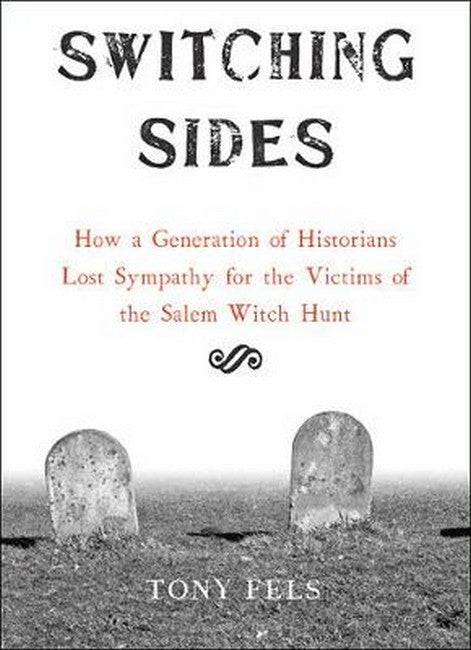For most historians living through the fascist and communist tyrannies that culminated in World War II and the Cold War, the Salem witch trials signified the threat to truth and individual integrity posed by mass ideological movements. Work on the trials produced in this era, including Arthur Miller's The Crucible and Marion L. Starkey's The Devil in Massachusetts: A Modern Enquiry into the Salem Witch Trials, left little doubt that most intellectuals' sympathies lay with the twenty innocent victims who stood up to Puritan intolerance by choosing to go to their deaths rather than confess to crimes they had never committed.
In Switching Sides, Tony Fels traces a remarkable shift in scholarly interpretations of the Salem witch hunt from the post Cold World War II era up through the present. Fels explains that for a new generation of historians influenced by the radicalism of the New Left in the 1960s and early 1970s, the Salem panic acquired a startlingly different meaning. Determined to champion the common people of colonial New England, dismissive toward liberal values, and no longer instinctively wary of utopian belief systems, the leading works on the subject to emerge from 1969 through the early 2000s highlighted economic changes, social tensions, racial conflicts, and political developments that served to unsettle the accusers in the witchcraft proceedings. These interpretations, still dominant in the academic world, encourage readers to sympathize with the perpetrators of the witch hunt, while at the same time showing indifference or even hostility toward the accused.
Switching Sides is meticulously documented, but its comparatively short text aims broadly at an educated American public, for whom the Salem witch hunt has long occupied an iconic place in the nation's conscience. Readers will come away from the book with a sound knowledge of what is currently known about the Salem witch hunt'and pondering the relationship between works of history and the ideological influences on the historians who write them.

